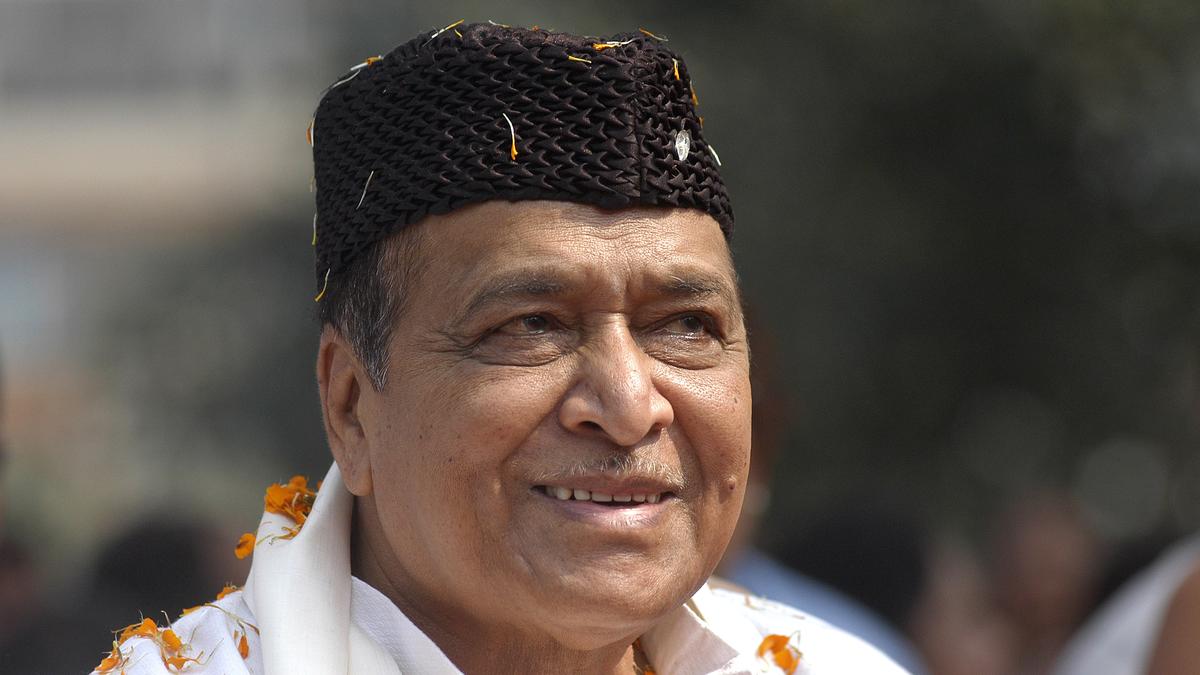A 19-year-long legal battle over James Brown’s estate led to a myriad of accusations of financial mismanagement, paternity challenges and questions over the future of a planned charitable foundation.
Brown died at age 73 on Christmas Day 2006 due to complications from congestive heart failure. The “Godfather of Soul” was married four times, though his exact number of children remains in dispute.
Brown acknowledged sharing Teddy (who died in a 1973 car accident), Terry and Larry with first wife Velma Warren, daughter Venisha (who died in 2018) with singer Yvonne Fair, daughters Dr. Yamma and Dr. Deanna with second wife Deidre Jenkins, son Daryl Brown with Beatrice Ford Stokes and son James Joseph Brown II with fourth wife Tomi Rae Hynie. Brown was also allegedly the father of daughter Lisa Brown, though very few details about her life have been publicly disclosed. Several others have made paternity claims about Brown over the years.
The State reported that, of August 2025, Brown’s estate has yet to be formally closed due to a legal fight between current and former administrators — meaning the Rock and Roll Hall of Famer’s dream of establishing a charitable education fund has yet to come to fruition.
James’ daughter Dr. Deanna Brown Thomas suggested the late singer would be disgusted by the 19-year court fight.
“I just know that my father’s turning over in his grave,” Brown Thomas, 56, told The State in an interview published on Wednesday, September 3. “Where’s the money?”
Keep scrolling for a look back at the entire saga and the current status of the case.
What Did James Brown Stipulate in His Will?

Trouble arose when the exact value of Brown’s estate proved difficult to calculate, due to various legal challenges and his own waning popularity in the early 2000s. The State reported that Brown’s family was given his insurance policies and the contents of his South Carolina mansion as part of a last will and testament drawn up by the singer in 2000, while the rights to his name and music would go to benefit underprivileged children seeking an education in South Carolina and Georgia. The charitable foundation was to be known as the “I Feel Good Trust.”
A separate trust — capped at $2 million — was set aside to pay for Brown’s grandchildren’s own education. The legendary singer stipulated that anyone who contested the contents of his will would not receive anything.
However, a legal battle over Brown’s estate began almost immediately after his death in December 2006. Numerous creditors went after Brown’s estate, and his fourth wife Hynie, sought inclusion on behalf of herself and her son, James II.
According to contemporary reports, Brown’s last will and testament was prepared in 2000 and never revised, even after he wed Hynie and welcomed their son, James II, in 2001. There were questions over the legality of Brown and Hynie’s marriage, as she was alleged to be wed to another man, Javed Ahmed, at the same time. A judge later ruled that Ahmed and Hynie’s marriage was invalid, thus establishing Hynie as Brown’s widow.
Hynie was involved in a protracted legal battle for control of the estate, and after intervention from both the South Carolina Court of Appeals and South Carolina Supreme Court, a settlement was finally reached between her and the trustee of the estate in 2021, reported the Associated Press.
Why Was Brown’s Will Challenged?

Brown’s estate remained tangled in legal battles in 2007 due to questions over the ability to reclaim copyright of his music. While Brown’s will stipulated his image and music rights should benefit his “I Feel Good” education fund, U.S. copyright law stipulated that these rights could only be passed down to his spouse and children.
Brown reportedly took out a loan of $26 million in 1999 and had $16 million still to pay back by the time of his death. Elsewhere, Brown’s children battled for months with the three trustees their father put in charge of his estate — the musician’s accountant David Cannon, his lawyer Albert “Buddy” Dallas and retired judge Al Bradley.
Adele Pope and Bob Buchanan were appointed as special administrators of the estate in March 2007. Their investigation into Brown’s finances led to Cannon being charged and pleading guilty to two counts of breach of trust in October 2011, reported Billboard. (Cannon was sentenced to home confinement, but later spent four months in prison when a court found him in contempt of an order to pay back money to the estate.)
Bradley and Dallas resigned when Cannon’s financial mismanagement was discovered, though they were personally never implicated in any misconduct. Against Brown’s family’s wishes, Pope and Buchanan organized a 2008 auction of the singer’s personal property — including many of his elaborate stage costumes — at Christie’s in New York City to pay off the remaining balance of the singer’s 1999 loan.
The auction failed to become a financial lifeline for the estates trustees, as it brought in only $857,688. A judge later approved Pope and Buchanan’s request to pay themselves $317,000, which — along with the auction — drew sharp criticism from the Brown family.
Why Was a Potential Estate Deal Thrown Out?

The South Carolina Attorney General’s office intervened to negotiate directly with Brown’s heirs and Hynie in 2008, while seeking to replace Pope and Buchanan as special administrators with accountant Russell Bauknight. A proposed settlement agreement stipulated that the “I Feel Good Trust” would be replaced with a charitable foundation run by the attorney general’s office (which made up just under 50 percent of the estate), while Brown’s heirs and Hynie would each receive a quarter of the remaining estate. A judge approved this agreement in 2009, according to The State.
Bauknight’s first steps were to cut deals with Brown’s creditors and spent more than $400,000 to remodel the musician’s Beech Island, South Carolina, mansion. He sought out new licensing deals for Brown’s music to infuse the estate with cash, while definitively establishing the total value of the estate at $6 million.
However, Bauknight was quickly embroiled in new legal fights as Pope and Buchanan fought their dismissal. Both sides brought legal challenges against one another for the next 15 years.
As the two sides continued their legal showdown, South Carolina’s Supreme Court threw out the 2009 settlement agreement between the attorney general’s office and Brown’s family because it amounted to “the total dismemberment of Brown’s carefully crafted estate plan and its resurrection in a form that grossly distorts his intent,” reported The State. Pope and Brown’s removal as special administrators was upheld by the high court.
Still, Pope said in a court hearing: “I am very proud of what I did for James Brown.”
Where Does the Case Stand Now?

Following the estate’s 2021 settlement with Hynie, sole administrator Bauknight negotiated the sale of the Brown estate’s assets to music acquisition firm Primary Wave for a reported $90 million. The firm owns the rights to music from Prince, The Doors, Bob Marley and more.
“James Brown was one of the greatest musical entertainers of all time, and one of the greatest legends of the music business,” Primary Wave founder Larry Mestel said in December 2021. “That fits what we do like a glove.”
The legal dispute between Bauknight and Pope is ongoing, whereas Buchanan reached a private settlement to drop his claim.
Brown’s “I Feel Good Trust” has yet to disperse money to help fund the education of underprivileged children in South Carolina due to its ongoing legal challenges.
“We still have no indication of where the $90 million is going or being used for,” his daughter Deanna told The State.
Instead of relying on the estate’s new owners, the Brown family’s separate James Brown Family Foundation handed out $1,000 in education scholarships in May 2025 in honor of his birthday.
A spokesperson for the Brown estate said there are “arrangements” to begin dispersing education funds in the artist’s hometown of Barnwell, South Carolina, once its legal dispute with Pope is resolved.

 4 days ago
1
4 days ago
1
























 English (US) ·
English (US) ·